
THREAD: pakistan ballistic missile kashmir attack
LifeLine™ Media threads use our sophisticated algorithms to construct a thread around any topic you want, providing you with a detailed timeline, analysis, and related articles.
News Timeline


PAKISTAN’S Bold Missile Test Ignites Fears Of Conflict With India
— Pakistan fired a powerful surface-to-surface missile on Saturday, turning up the heat with India. This comes just weeks after a deadly attack in Kashmir. The Abdali Weapon System can strike targets up to 280 miles away and uses advanced navigation, according to Pakistan’s military. Officials in Islamabad claim the test was only about staying prepared. But experts believe it was meant as a warning to India. The missile is named after an old Muslim conqueror of India, which adds an extra layer of meaning. India has not responded directly but recently showed off its own naval weapons. Both sides are showing their strength as arguments over Kashmir and water rights grow more serious. Tensions between these nuclear-armed neighbors are rising again, leaving many worried about what could happen next.
KASHMIR BLOODSHED Ignites Shocking India-Pakistan Visa BAN
— Tensions exploded between INDIA and PAKISTAN after a brutal militant attack in Kashmir left 26 dead, most of them Indian tourists. In response, both countries slammed the brakes on visas for each other’s citizens. This move marks a dramatic collapse in already shaky relations.
India is pointing the finger at Pakistan for the deadly assault near Pahalgam and has ramped up its military presence in Kashmir. The Indian government also froze an important water-sharing agreement with Pakistan, sending tensions even higher between these nuclear rivals.
Diplomatic ties have hit rock bottom, with both sides blocking entry to each other’s people and putting security forces on high alert along the border. The world is now watching as two of Asia’s biggest powers face off once again over Kashmir.
RUSSIA’S Shocking Attack on Ukraine: EU Calls for Tough Sanctions
— European leaders are outraged by Russia’s missile attack on Sumy, Ukraine, which killed 34 and injured 117. The strike happened during Palm Sunday celebrations, marking the second major civilian tragedy in just over a week.
Polish Foreign Minister Radek Sikorski slammed Russia’s actions as mocking U.S.-led ceasefire efforts. He urged President Trump to see Russia’s blatant disregard for peace initiatives.
Finnish Foreign Minister Elina Valtonen noted the attack followed talks between Trump’s envoy and Putin, showing Russia’s indifference to peace and human life. Lithuania called using cluster munitions a war crime.
French Foreign Minister Jean-Noël Barrot demanded strict EU sanctions against Russia to cripple its economy and stop its war efforts, stressing Putin’s refusal to end hostilities willingly.

PAKISTAN TRAIN Hijack: Shocking Hostage Claims Spark Chaos
— A train hijacking in Pakistan has caused confusion over the number of hostages. The Baloch Liberation Army (BLA) says they took 182 people, while police claim all 350 passengers are safe.
Special forces have been sent to handle the situation and protect passengers. This incident has caught media attention and raised fears about regional security and militant groups.
The response from law enforcement and military units shows a strong commitment to quickly resolving the crisis. Yet, conflicting reports reveal the chaos and challenge of getting accurate information in such events.

TRAIN HIJACKING in Pakistan: Hostages Face Grave Danger
— In a shocking turn of events, Pakistani insurgents hijacked a passenger train on Tuesday, putting around 500 people at risk. The separatists have threatened to harm 182 hostages if their demands aren’t met. Authorities are working tirelessly to resolve the crisis as it unfolds.
This event highlights the ongoing tensions in Pakistan and raises serious concerns about public transportation safety in areas affected by insurgency. The situation is changing rapidly, with updates expected as negotiations continue.
The hijacking underscores the struggle between government forces and separatist groups in the region. Public safety is at risk, prompting urgent action from Pakistani authorities to secure a peaceful resolution.

BALOCH Militants HIJACK Train: Hostage Crisis Shocks Pakistan
— In a shocking turn of events, the Baloch Liberation Army (BLA) hijacked the Jaffar Express in Pakistan’s Balochistan province. The train, traveling from Quetta to Peshawar, was attacked by militants who took 214 hostages, including military and police personnel. Reports reveal that 20 security members were killed during the hijacking.
The attack happened as the train neared a tunnel. Militants blew up the tracks, causing panic among about 450 passengers. Hostages have been separated by gender, increasing fear and chaos among families on board. The BLA has threatened to execute hostages if there is any military intervention.
Rescue operations are ongoing with reports indicating that 104 hostages have been freed so far. However, many remain captive amid difficult terrain and communication issues complicating efforts. The Pakistani government has declared an emergency in local hospitals and urged all agencies to respond quickly to this crisis.
The BLA demands the release of Baloch political prisoners while warning of severe consequences if their conditions are not met promptly. This incident highlights ongoing tensions in Balochistan over alleged government neglect and resource exploitation as security forces negotiate for a peaceful resolution to this hostage crisis.

HEROIC RESCUE: Security Forces Save 104 Hostages in Pakistan Train Hijacking
— Security forces in Pakistan bravely rescued 104 passengers from a hijacked train in the Bolan area. Militants had seized control of the Jaffer Express, injuring the driver during their attack. The operation resulted in the elimination of at least 16 terrorists.
The clash between security forces and militants was intense, but all passengers were saved. This incident highlights ongoing security challenges in a region troubled by militant threats to civilian safety. Authorities are now reviewing response strategies that led to this successful rescue mission.
This event underscores the urgent need for continued vigilance against terrorism in Pakistan and similar regions. The swift action by security forces serves as a reminder of their vital role in maintaining public safety amid persistent threats.

MILITANTS HIJACK Pakistan Train: Tragic Attack Leaves 10 Dead
— A group of militants hijacked a passenger train in western Pakistan, killing ten people. The attack happened while the train was on its route. Several passengers were taken hostage, making the situation worse quickly.
Security forces have been sent to handle the crisis and negotiate for hostage releases. Initial reports said there were 350 passengers on board, but details about hostages are still unclear. Authorities are working hard to keep passengers safe and solve the situation effectively.
The motive for this violent act is still unknown as investigations continue. This incident highlights ongoing security challenges in Pakistan due to militant activities. The government has condemned the attack and promised strong action against those responsible for this tragedy.
Updates will follow as efforts progress to restore safety and address concerns raised by this alarming event. The international community watches closely as Pakistan deals with these persistent threats from militant groups.

INSURGENTS STRIKE: Chaos on Pakistan Train Leaves Many Fearing the Worst
— Insurgents launched a shocking attack on a passenger train in Pakistan today. The train, carrying hundreds, was ambushed by armed militants, causing chaos and panic among the passengers.
Details on casualties are still unclear. Initial reports suggest significant injuries and many missing individuals. The fate of most passengers remains unknown at this time, leaving families anxious for news.
Rescue operations have begun as local authorities work tirelessly to secure the area and assist victims. This incident highlights persistent security challenges in militant-prone regions of Pakistan.

ISRAELI-PALESTINIAN Conflict Erupts: Deadly Attack Shocks the World
— Tensions have surged in the Israeli-Palestinian conflict after a deadly attack on Israeli settlers in the West Bank. At least seven Israelis were killed, and several others injured when armed militants targeted a convoy with automatic weapons and grenades. This incident has drawn condemnation from Israeli officials and Western leaders.
In response, the Israeli Prime Minister has promised strong retaliatory action, emphasizing citizen safety as a top priority. He declared, “We will not allow this barbaric violence to go unanswered.” Military operations in the West Bank are expected to increase as part of Israel’s response strategy.
The attack has reignited international calls for peace talks, with global leaders urging both sides to reduce tensions. The United Nations Secretary-General called for an immediate ceasefire and emphasized dialogue to prevent further loss of life. “This cycle of violence must end,” he stated, pushing for a peaceful resolution to the conflict.
Local communities brace for potential escalation amid reports of protests and clashes across Palestinian territories. The ongoing disputes over land and settlements continue fueling tensions, with both sides preparing for possible military action as the world watches closely for signs of peace progress.
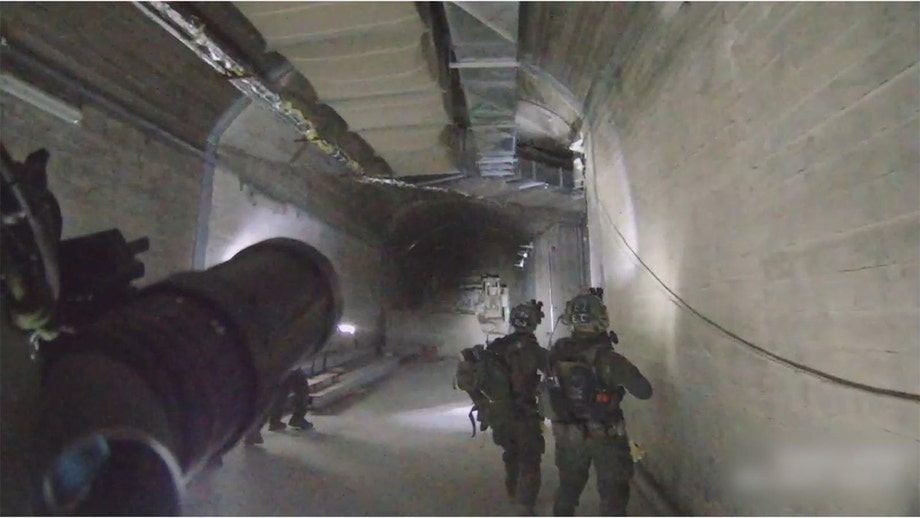
ISRAELI FORCES Strike: Secret Syrian Missile Factory Destroyed
— Elite Israeli forces carried out a bold raid in Syria, taking down an underground missile factory in September. The Israel Defense Forces (IDF) announced the mission on Thursday, calling it one of their most important operations lately. Dramatic footage showed commandos clearing the site before a huge explosion leveled the complex.
The facility was cleverly hidden within a mountain, showing its value to Syria’s military strength. During the mission, vital information about Syria’s chemical weapons program was also discovered. This finding highlights ongoing regional security issues and shows Israel’s dedication to stopping threats.
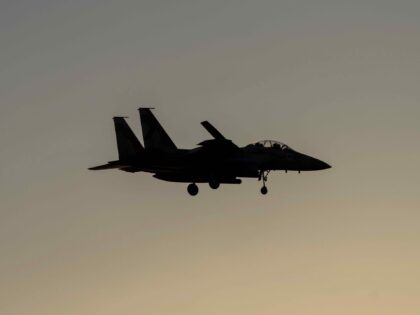
ISRAEL’S Bold Response: Striking Down Houthi Threats
— The Houthis launched their seventh ballistic missile at ISRAEL, along with five drone attacks in recent weeks. Sirens blared in Tel Aviv early morning as shrapnel threatened the area. Thankfully, no injuries were reported.
Israel responded swiftly to the Houthi aggression. The IDF, under Defense Minister Israel Katz’s approval, targeted military sites in Yemen with airstrikes and naval operations. These strikes aimed to dismantle the Houthis’ military capabilities and prevent further threats.
The IDF stated that most of the Houthi-launched projectiles had been intercepted successfully. The targets hit were crucial for military operations and weapon smuggling facilitated by Iran and Iraqi militias. This collaboration aims to destabilize the region and threaten Israeli civilians.
Israel remains steadfast in defending its citizens against any threats posed by hostile forces like the Houthis, backed by Iran’s support. The IDF is committed to neutralizing dangers wherever necessary to ensure national security and regional stability.

US STRIKES on ISIS in Syria: A Powerful Blow to Terrorism
— U.S. Central Command (CENTCOM) announced a series of successful strikes on ISIS locations in Syria, eliminating up to 35 terrorists. The operation targeted multiple camps and took out several senior ISIS leaders, with no civilian casualties reported.
CENTCOM stated that these airstrikes will disrupt ISIS’s ability to plan and execute attacks against civilians, the U.S., allies, and partners in the region. The command emphasized its commitment to degrading ISIS’s operational capabilities alongside regional allies to ensure the group’s defeat.
This announcement follows an incident in Iraq where two U.S. service members were injured during an operation that killed at least seven ISIS operatives. Both service members are reportedly in stable condition as CENTCOM continues its efforts against terrorism in the Middle East.

— Israel Conducts Precision Strikes on Iranian Targets The Israeli military announced it executed three waves of strikes in retaliation for ongoing attacks from the Iranian regime
— Israel Intercepts Missile, Sounding Air Raid Sirens Across Central Region The Israeli military successfully shot down a surface-to-surface missile, triggering air raid alerts throughout central Israel

— Explosions Rock Beirut Following Deadly Pager Attack Hezbollah and Lebanese state media report multiple explosions across Lebanon, a day after an attack claimed at least 12 lives
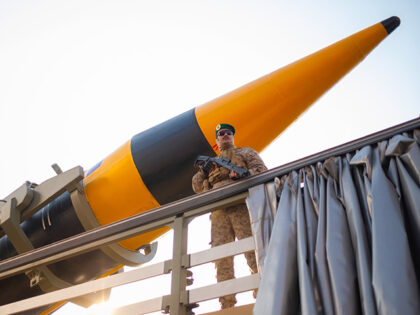
IRAN’S BOLD Strike: Over 300 Drones Target Israel in Unprecedented Assault
— In a bold move, Iran launched over 300 drones and missiles at Israel, marking a major spike in hostilities. This attack was directly from Iran, not through its usual channels like Hezbollah or the Houthi rebels. President Biden called this assault “unprecedented.” Despite the massive scale of this strike, Israel’s defense systems managed to intercept about 99 percent of these threats.
Iran hailed this as a “victory,” even though the damage was minimal and only one Israeli life was lost. The Islamic Revolutionary Guard Corps (IRGC), known as a terrorist organization by the U.S., spearheaded this attack after vowing revenge on Israel for targeting their leaders. This move is seen by many as proof of Iran feeling more bold due to current U.S. foreign policy decisions.
This aggressive act followed Iran’s expansion of its drone and missile programs after an important deadline from the Obama-era nuclear deal passed without action on October 18, 2023. This occurred despite Iran breaking the deal’s terms and backing terrorist attacks against Israel, including a recent massacre led by Hamas with Tehran’s support.
Iran’s latest actions show it ignoring international deals and underline worries about its nuclear plans. The regime’s pride in attacking Israel points to its ongoing threat to peace in the Middle East and worldwide security, sparking debate on how best to contain it moving

— Israeli Strikes on Lebanon Kill Four, Including Children, and Cause Vast Damage, Security Sources Report

— Russia Unleashes New Zircon Missile: Experts Confirm Debris Found in Telegram Video Experts confirm the use of Russia’s new Zircon missile as a video on Telegram reveals debris believed to be from the weapon
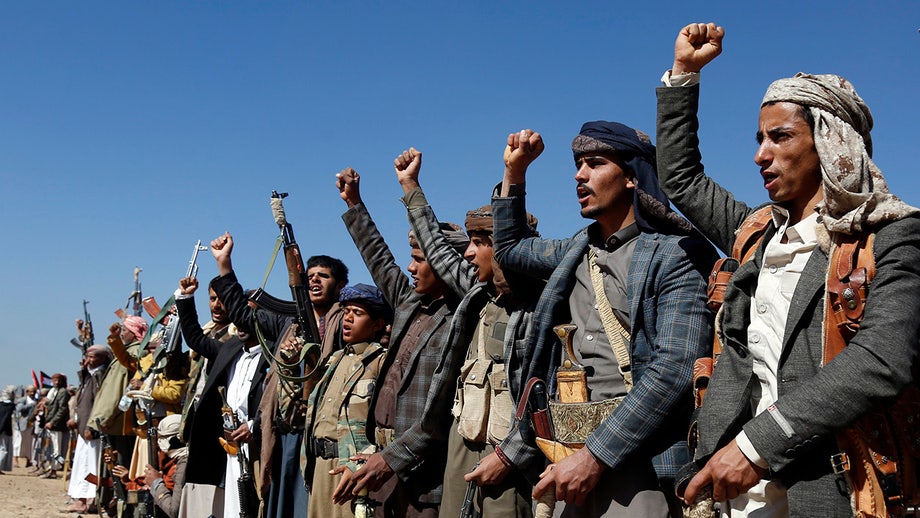
US STRIKES BACK: Protecting Commercial Ships from Houthi Missiles in Yemen
— The US has launched strikes on roughly a dozen missiles owned by the Houthi rebels in Yemen, an official stated. These missiles were reportedly being primed to target commercial ships navigating the Red Sea and Gulf of Aden.
This move comes after a previous US strike on a stockpile of anti-ship ballistic missiles, owned by the Houthis. The action was taken in direct retaliation to a missile fired at US vessels present in the Red Sea.
Houthi forces have openly claimed responsibility for ongoing attacks on merchant vessels and have issued threats against US and British ships. Their campaign is part of their support for Hamas against Israel.
This recent attack by the Houthis is the first one acknowledged by the US since they initiated strikes last Friday. This follows weeks of relentless assaults on shipping within the Red Sea region. Stay tuned as we continue to provide updates on this developing story.
US-Owned Ship UNDER FIRE: Houthi Rebels Escalate Red Sea Tensions
— In a recent escalation of Red Sea tensions, Houthi rebels launched a missile attack on a U.S.-owned ship, the Gibraltar Eagle. The strike occurred off Yemen’s coast in the Gulf of Aden and comes less than a day after an anti-ship cruise missile targeted an American destroyer in the same area. Responsibility for these attacks has been claimed by the Houthis, following American-led strikes against rebel forces.
The United Kingdom Maritime Trade Operations (UKMTO) reported that this latest attack happened approximately 110 miles southeast of Aden. The captain of the ship reported that a missile struck the port side from above. Private security firms Ambrey and Dryad Global identified the attacked vessel as Eagle Gibraltar, registered under Marshall Islands’ flag as a bulk carrier.
The U.S military’s Central Command has confirmed this strike but reports no significant damage or injuries aboard Eagle Gibraltar which continues its voyage undeterred. Brigadier General Yahya Saree, Houthi military spokesman, took responsibility for this attack during his televised address on Monday night.
Saree declared all American and British ships involved in aggression against Yemen as hostile targets during his address. These attacks are causing disruptions to global shipping amidst Israel’s ongoing conflict with Hamas in Gaza — impacting vital routes linking Asian and Middle Eastern energy and cargo shipments to Europe via Suez
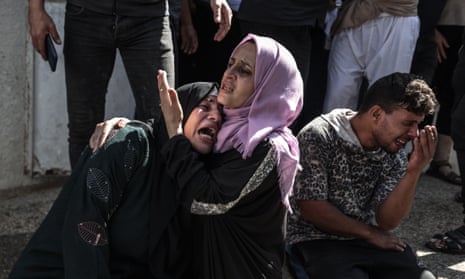
LEBANON STRIKES: Hezbollah’s Deadly Missile Attack Rattles Israel Amidst Gaza Conflict
— A lethal anti-tank missile, launched from Lebanon, claimed the lives of two civilians in northern Israel this past Sunday. This alarming incident has ignited concerns over a potential second front emerging amidst the ongoing clash between Israel and Hamas.
This strike marks a grim milestone — the 100th day of a war that has tragically taken nearly 24,000 Palestinian lives and forced approximately 85% of Gaza’s population from their homes. The conflict was sparked by an unexpected Hamas incursion into southern Israel last October, leading to around 1,200 fatalities and roughly 250 hostages.
The region remains on edge as daily fire exchanges persist between Israel and Lebanon’s Hezbollah group. Meanwhile, Iranian-backed militias target U.S. interests in Syria and Iraq as Yemen’s Houthi rebels threaten international shipping lanes.
Hezbollah’s leader, Hassan Nasrallah, remains defiant vowing to persist until a Gaza cease-fire is established. His declaration comes as countless Israelis evacuate northern border regions due to escalating aggression.
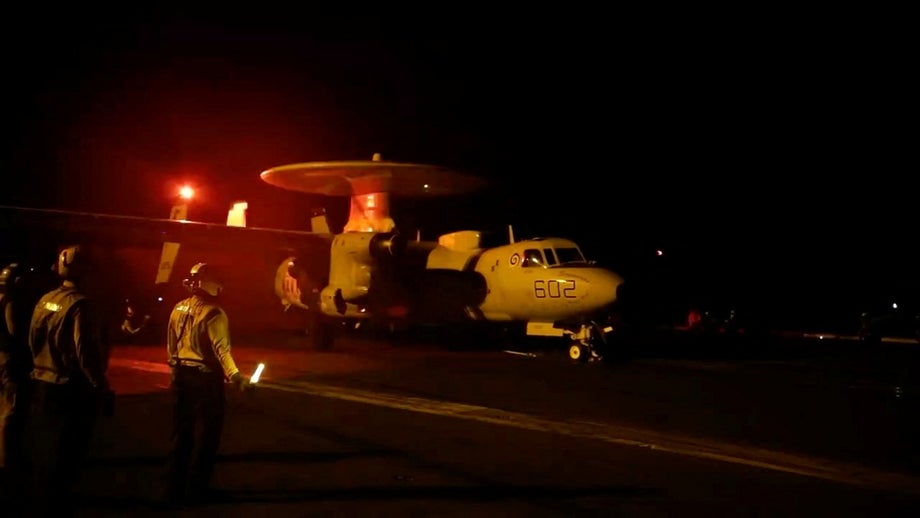
US-UK STRIKES on Yemen’s Houthi Rebels: A Stern Warning of Fierce Retaliation
— Yemen’s Houthi rebels, supported by Iran, have issued a stern warning. They assert that the joint airstrikes conducted by the US and UK will not be left unanswered. The ominous message came from Houthi military spokesman Brig. Gen. Yahya Saree and deputy foreign minister Hussein al-Ezzi, who warned both nations to brace for a severe backlash.
The strikes reportedly claimed five lives and injured six among the Houthis’ military forces in areas of Yemen under their control. The UK acknowledged successful strikes on a site in Bani used for drone launches by the Houthis, as well as an airfield in Abbs used to launch cruise missiles and drones.
In a related move, the US Treasury Department slapped sanctions on two firms based in Hong Kong and the United Arab Emirates. These firms are accused of shipping Iranian commodities for Sa’id al-Jamal, an Iran-based financial facilitator for the Houthis. Four vessels owned by these companies were identified as blocked property.
President Biden authorized these strikes as a direct response to unprecedented attacks by Houthis against international maritime vessels in the Red Sea
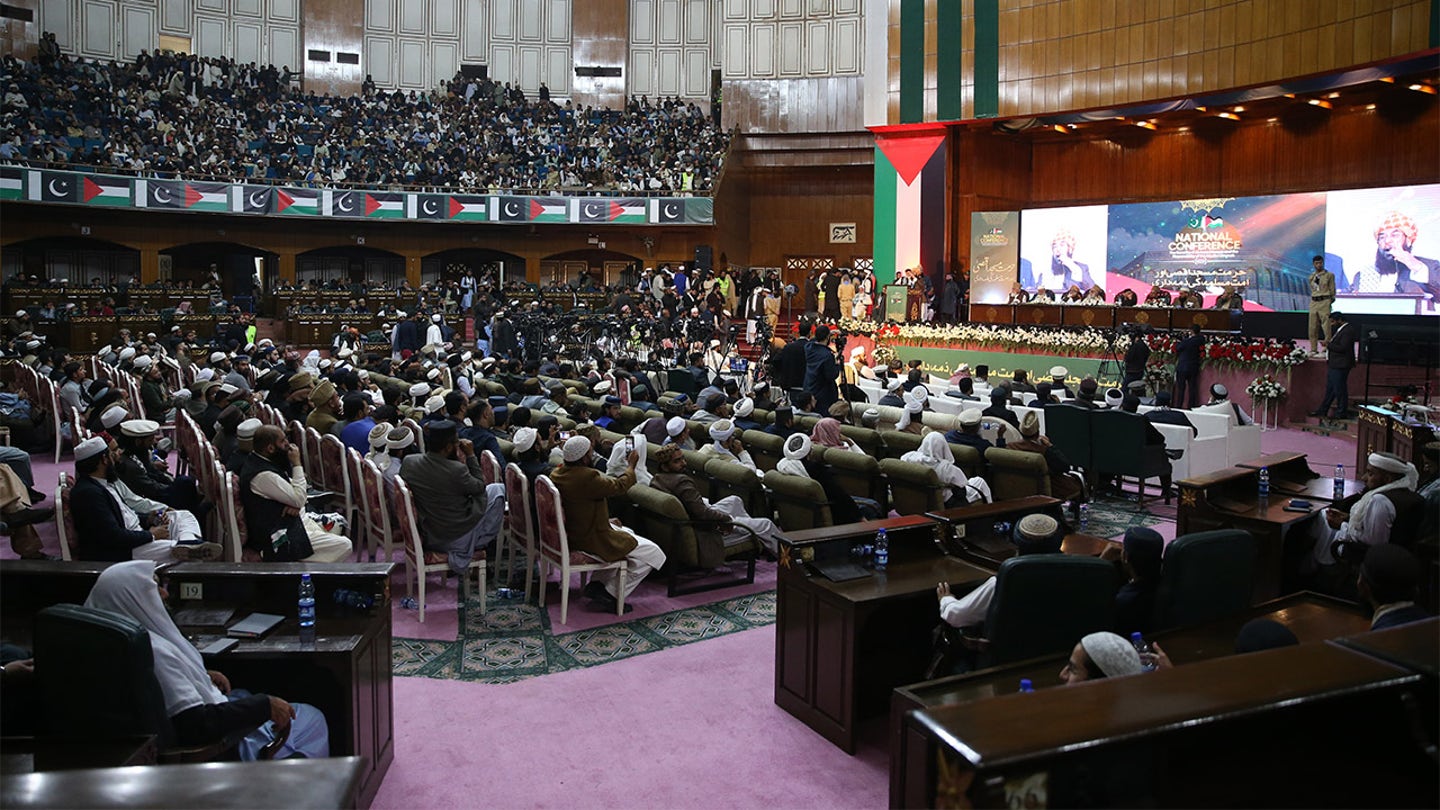
PAKISTAN’S Nuclear Leverage: Hamas Leaders Urge for a Showdown with Israel
— Leaders of Hamas and Islamic scholars gathered in Pakistan’s capital recently. They suggested that the ongoing conflict in Gaza might be stopped if nuclear-armed Pakistan were to threaten Israel. These remarks have been widely reported in Pakistani media and noted by the Middle East Media Research Institute (MEMRI).
The conference, titled “The Sanctity of Al-Aqsa Mosque and the Responsibility of the Islamic Ummah,” was put together by the “Pakistan Ummah Unity Assembly.” According to MEMRI, this assembly is a network of Islamic religious organizations.
Ismail Haniyeh, one of the main speakers at this event, called on Pakistan to take a more proactive role in resolving the Israel-Hamas conflict. He said, “If Pakistan threatens Israel, then we can halt this war. We have high hopes from Pakistan. They can compel Israel to back down.”
Haniyeh also referred to Jews as “the biggest enemy of Muslims worldwide.” This inflammatory language has raised eyebrows among international observers due to concerns about escalating tensions in an already unstable region.
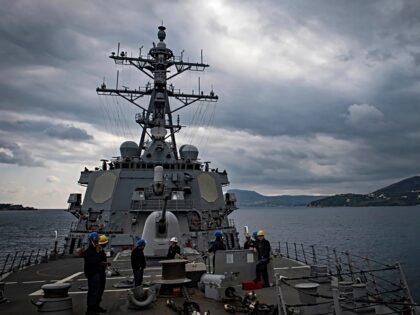
RED SEA Chaos: Iranian-Backed Houthis Unleash Missile Attacks on Commercial Ships, US Destroyer Strikes Back
— Central Command has verified four missile attacks on three commercial ships in the Red Sea. One of these was an Israeli-owned vessel. The Houthis in Yemen initiated the attacks, but they were “fully backed by Iran,” according to a statement released Sunday. The USS Carney, a U.S. destroyer, retaliated by shooting down two drones.
The assaults started at 9:15 a.m. local time when the Carney detected an anti-ship missile launched from Houthi-controlled areas in Yemen at the M/V Unity Explorer. This ship is flagged by Bahamas and U.K owned with crew members from two nations. However, USNI News and Balticshipping.com report that Tel Aviv-based Ray Shipping owns it.
Around noon, Carney responded to and shot down a drone also launched from Houthi-controlled areas in Yemen. Central Command stated that it was uncertain whether the drone specifically targeted CARNEY or not but confirmed no damage to the U.S vessel or injuries to personnel.
These attacks pose a direct threat to international commerce and maritime security,“ Central Command said in its statement. It added that it would consider appropriate responses ”in full coordination with its international allies and partners.

Video
ISRAEL STRIKES Hezbollah: Lebanon Rocked By Explosions
— Israel’s defense minister, Yoav Gallant, has announced a “new phase” of the war against Hezbollah militants in Lebanon. Gallant praised the army and security agencies for their impressive results and emphasized the need for courage as military resources shift northward.
Lebanon is reeling from mysterious explosions targeting electronic devices like walkie-talkies and solar equipment. These incidents follow previous pager explosions that killed nine people and injured 300, heightening fear among the Lebanese population.
Explosions disrupted a funeral in Beirut for Hezbollah members killed by earlier pager blasts, causing further damage in Sidon. The strategy appears aimed at destabilizing Hezbollah’s communication infrastructure and creating chaos within its ranks.
The situation remains tense with potential for broader regional conflict growing. As both sides prepare for intensified warfare, the humanitarian impact on civilians looms large, highlighting the urgent need for diplomatic intervention to prevent further bloodshed.
More Videos
Invalid Query
The keyword entered was invalid, or we couldn't gather enough relevant information to construct a thread. Try checking the spelling or entering a broader search term. Often simple one-word terms are enough for our algorithms to build a detailed thread on the topic. Longer multi-word terms will refine the search but create a narrower information thread.
Politics
The latest uncensored news and conservative opinions in US, UK, and global politics.
get the latestLaw
In-depth legal analysis of the latest trials and crime stories from around the world.
get the latest
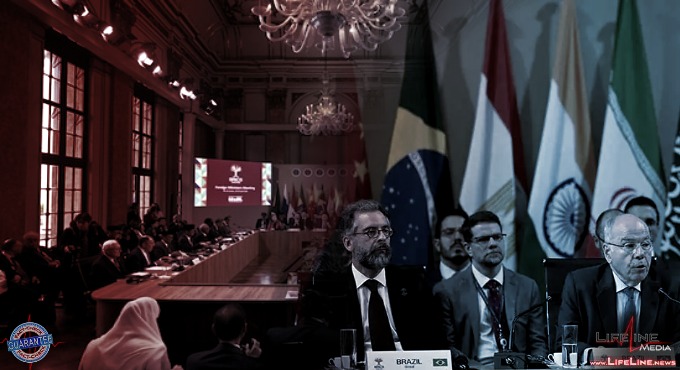

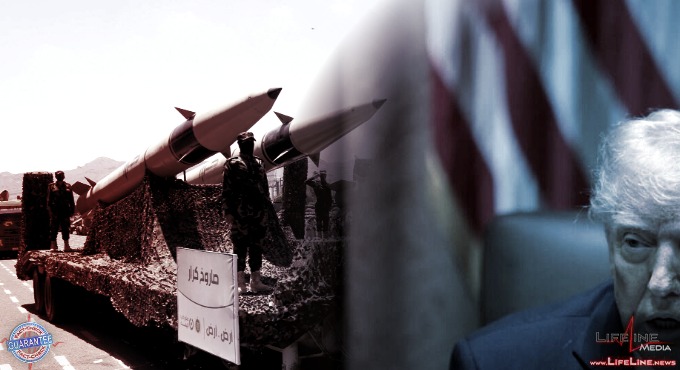
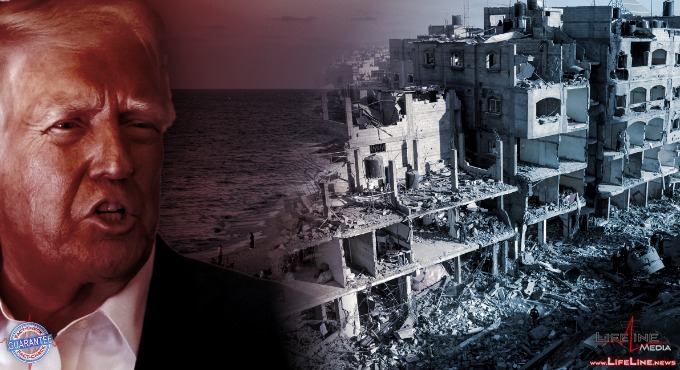
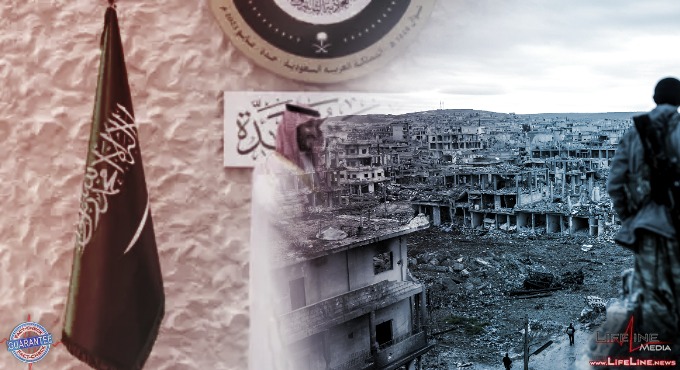
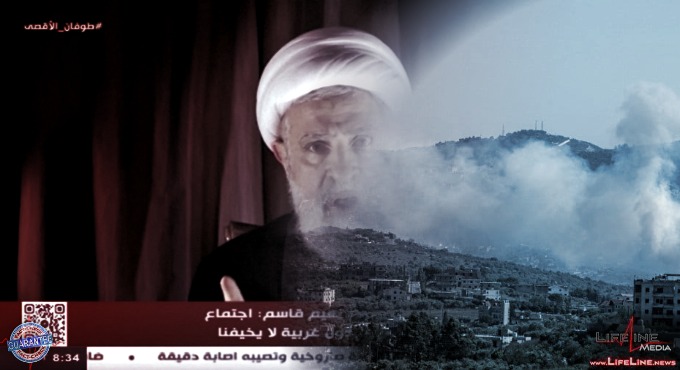






Social Chatter
What the World is Saying🚨 Sirens sounded in southern Israel following a projectile that was launched from Yemen. The details are under review.
. . .🚨Sirens sounding in northern Israel due to projectile fire from Yemen
. . .🚨Sirens sounding across Israel following a projectile launched from Yemen
. . .⭕A summary of the resumed precise operations in Gaza (starting from March 18, 2025): 🎯Approx. 1,200 terrorist targets—including terrorist tunnel routes—have been struck from the air...
. . .🚨Sirens sounding across Israel after a projectile was fired from Yemen
. . .